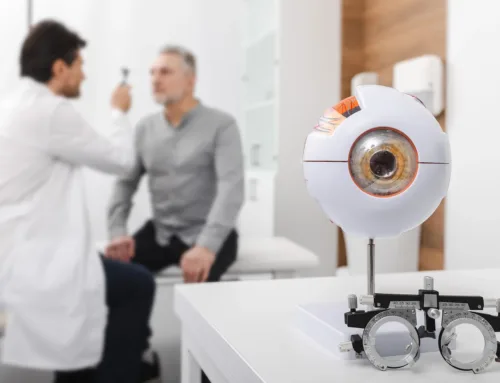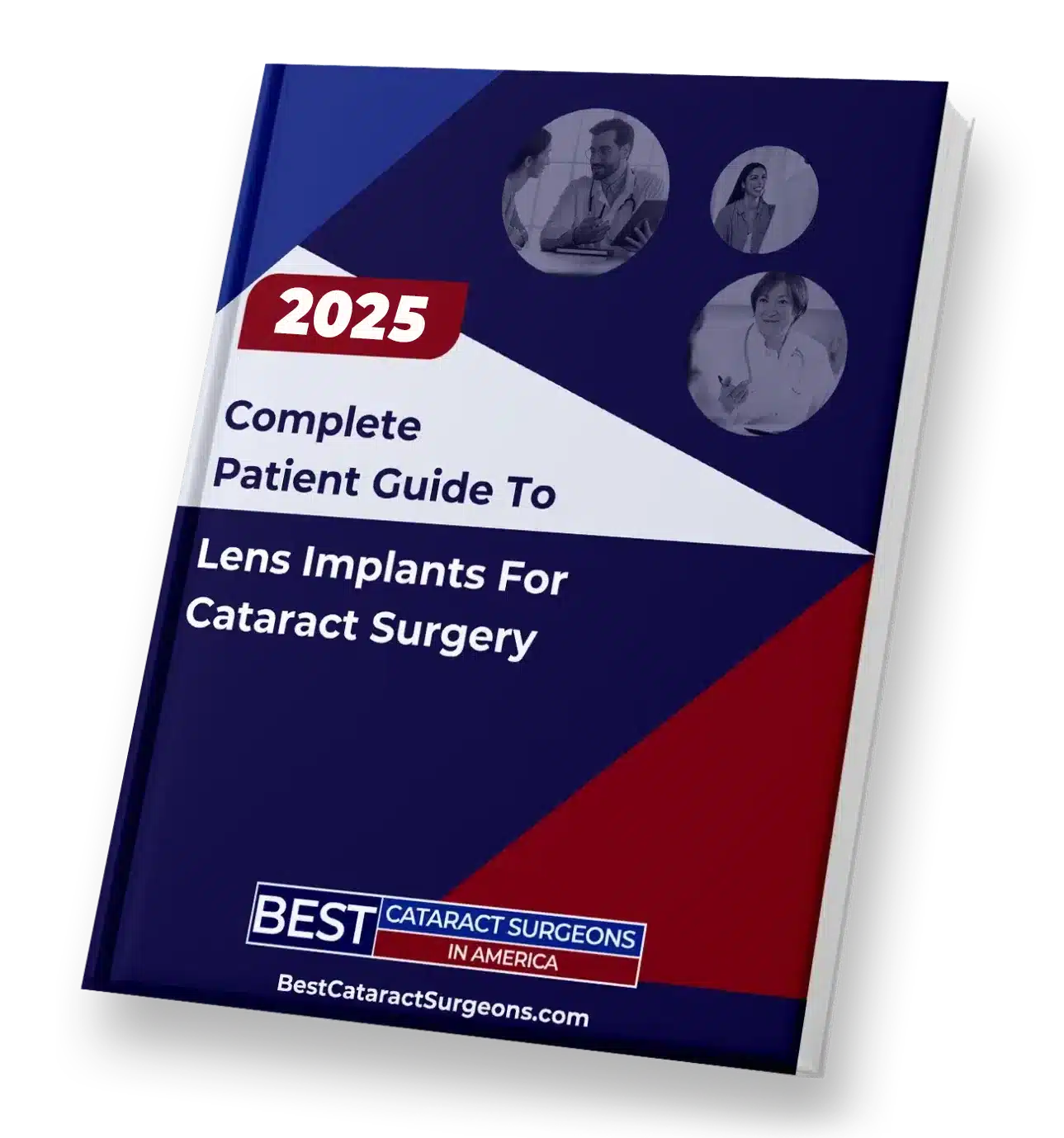A cataract is a clouding of the natural crystalline lens in the eye due to changes in the protein structure over time. As cataracts develop, symptoms such as blurry or reduced vision, glare and haloes may occur. Though there are several different types of cataracts. The three most common types of cataracts are: nuclear sclerotic cataracts, cortical cataracts, and posterior subcapsular cataracts.
In this article, we’ll review everything you’ll need to know as a patient about cortical cataracts and how to fix them.
What Are Cortical Cataracts?
A cortical cataract develops in the outer layers of the cataract (“the cortex”) and grows slowly in a spoke-like fashion from the lens periphery to the center. These “spokes” can cause light rays entering the eye to scatter, which in turn causes blurry vision, glare, haloes and issues with contrast sensitivity (how sharp an image seems). These cataracts can progress slowly or rapidly.

Cortical Cataract
Cortical cataracts are common in all patients with cataracts. In some patients that are more common, and can grow more rapidly. This includes patients with poorly controlled diabetes or a history of trauma.
When a patient is examined for cataract, they typically have their vision checked, have a comprehensive exam using a slit lamp (a specialized ophthalmic microscope) and a retinal exam to check the health of the back of the eye.
What Are The Main Cortical Cataract Causes?
The main cause of cortical cataracts, like most cataracts is advancing age. However, history of trauma/eye injury, uncontrolled diabetes and family history of cataract also play roles. Smoking and advanced myopia (nearsightedness) have also been implicated in the development of cortical cataracts.
What Are Cortical Cataract Symptoms?
Symptoms of cortical cataracts are blurry and hazy vision, severe glare from sources of light (such as headlights from cars, street lamps), difficultly differentiating colors/shades of colors, difficulty with depth perception, as well as monocular diplopia (double vision in one eye).
Can Cortical Cataracts Be Prevented?
Although many patients will develop cataracts with increasing age, there may be some preventative steps to take in order to slow their growth and therefore impact on visual acuity. Avoidance of smoking and/or smoking cessation have been shown to be helpful in preventing cataract growth. Protecting the eyes from excessive UV light exposure by using sunglasses outside may also prevent accelerated cataract development, as well as keeping diabetes and hypertension under control.
Getting regular eye exams can also help identify early cataract formation and help develop a treatment plan with your ophthalmologist, even if surgery is not for several years to come. With early cataract formation, glasses and/or contact lenses may be used to help improve vision. Ultimately, the definitive treatment for cortical cataracts (and most cataracts for that matter) is cataract surgery.
What Cortical Cataract Treatment Options Are There?
Cortical cataracts are common. There are thousands of patients who have them fixed with modern cataract surgery every year. In this section, let’s discuss some of the details of treating this type of cataracts.
Are Cortical Cataracts More Difficult to Treat?
It depends. Some advanced cortical cataracts can result in complex cataract surgery. If the cortex is so white, it may impair the surgeons vision during your procedure. When cortical cataracts become so advanced that they are completely white, they are called “mature cataracts”. Don’t fear though. The surgeon can use a blue dye to create contrast against the white cataract to help avoid complications.

Mature Cortical Cataract. Blue dye is used to create contrast between the white cataract and the capsule which supports it.
Trauma to the eyes can also result in cortical cataracts. Traumatic cataracts can also be more difficult to treat, and are at increased risk of complications.
The majority of these are routine cases. But when cataracts become very advanced, the risks can increase.
Can Laser Cataract Surgery Treat Cortical Cataracts?
Yes. Laser cataract surgery can be performed on this type of cataract. It may be particularly beneficial for complex cortical cataracts, such as mature cataracts or traumatic cataracts.
Which Lens Implants Can I Get If I Have Cortical Cataracts?
Cataract type is generally not a factor in determining which type of lens implant you should have. There are other factors that your eye doctor may discuss with you, such as whether you’ve had previous eye surgery or have other eye diseases (like glaucoma or macular degeneration).
Patients with this type of cataract can be good candidates for multifocal implants, extended depth of focus implants, light adjustable lens implants, or toric lens implants.
Discuss with your doctor which lens implant options you are a good candidate for.
Does Medicare Cover Cataract Surgery for Cortical Cataracts?
Yes. If your cataract impairs your activities, such as driving, reading or working, then Medicare will cover it. Medicare coverage for cataract surgery is not determined based on the type of cataract. What is important is if your cataract impacts your vision and ability to function in your daily activities.
Summary
Cortical cataracts are one of the most common types of cataracts. While often they are routine, there can be situations in which they are complex. As always, it is important to have your procedure with an experienced cataract surgeon.
Reference:
Chapter 4, Pathology.” Lens and Cataract, 2013th-2014th ed., American Academy of Ophthalmology, San Francisco, CA, 2013, pp. 39–64. Basic and Clinical Science Course.











